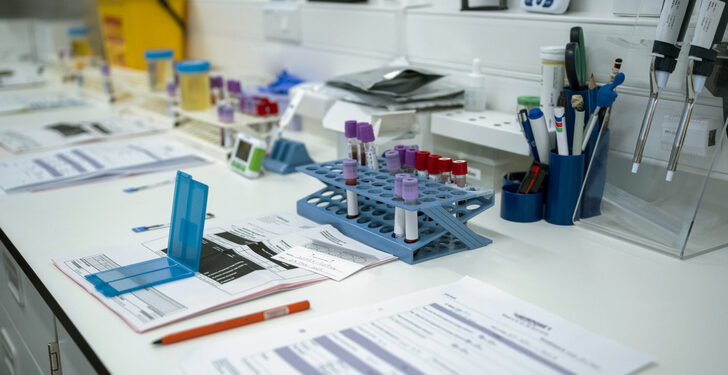On November 15, the U.S. Department of Justice (DOJ) announced that pharmaceutical company QOL Medical LLC and its CEO Frederick E. Cooper agreed to pay $47 million to settle False Claims Act allegations. A group of whistleblowers, all former QOL employees, alleged that QOL and Cooper were defrauding federal healthcare programs by offering kickbacks in the form of free Carbon-13 breath testing services as part of a scheme to induce claims for QOL’s drug Sucraid.
According to the DOJ, starting in 2018, QOL “distributed free Carbon-13 breath test kits to health care providers and asked providers to give the kits to patients with common gastrointestinal symptoms.” QOL did so under the misleading guise that these tests could definitively diagnose the rare genetic condition Congenital Sucrase-Isomaltase Deficiency (CSID), which Sucraid is an FDA-approved therapy for.
“QOL paid a laboratory to analyze the breath tests, report the results to health care providers and also provide the results to QOL,” the DOJ further alleges. “The results provided to QOL did not contain patient names, but did contain the name of the health care provider who ordered the test, along with the patient’s age, gender, symptoms and test result. Between 2018 and 2022, QOL disseminated this information to its sales force with instructions to make sales calls for Sucraid to health care providers whose patients had positive Carbon-13 breath test results. QOL tracked whether sales representatives converted ‘positive’ Carbon-13 breath tests into Sucraid prescriptions. As QOL’s CEO, Cooper was aware of and approved the implementation and continuation of this marketing program.”
The settlement stems from a qui tam whistleblower lawsuit filed by former QOL employees, Elizabeth Allen, Lauren Canlas, Donald Johnson and Stacey Adams.Under the False Claims Act’s qui tam provisions, individuals may file lawsuits alleging government contracting fraud on behalf of the United States. In successful qui tam cases, whistleblowers are eligible to receive between 15 and 30% of the settlement.
The whistleblowers are set to receive $8 million as their share of the recovery.
“Participants in the federal healthcare system, including pharmaceutical manufacturers, may not offer improper inducements to generate business,” said Principal Deputy Assistant Attorney General Brian M. Boynton, head of the Justice Department’s Civil Division. “The department is committed to protecting the integrity of federal health care programs, upholding the objectivity of treatment decisions by physicians and patients and preventing overutilization and waste in government health care programs.”
“QOL provided free goods to doctors and patients in order to induce prescriptions for the very expensive drug QOL manufactured,” said Acting U.S. Attorney Joshua S. Levy for the District of Massachusetts. “Not all kickbacks come in the form of cash going into a doctor’s or a patient’s pocket. Here, the defendants relied on free breath tests and misleading sales tactics to drive patients to their product. This conduct unnecessarily drained money from the federal health care programs and improperly influenced treatment decisions by physicians and their patients.”
In July 2023, a bipartisan group of senators introduced the False Claims Amendments Act of 2023, which address a few technical loopholes undermining the success of the FCA. The bill is widely supported by whistleblower advocates.
National Whistleblower Center (NWC) has issued an Action Alert calling on Congress to pass the bill.
Join NWC in Taking Action:
Demand that Congress strengthen the False Claims Act
Further Reading:
Bipartisan Legislation Unveiled to Strengthen False Claims Act


